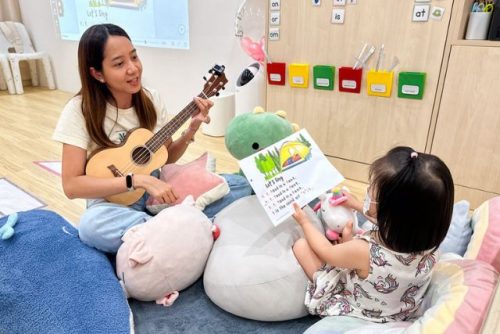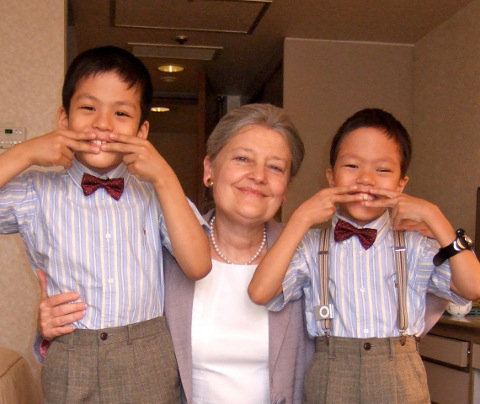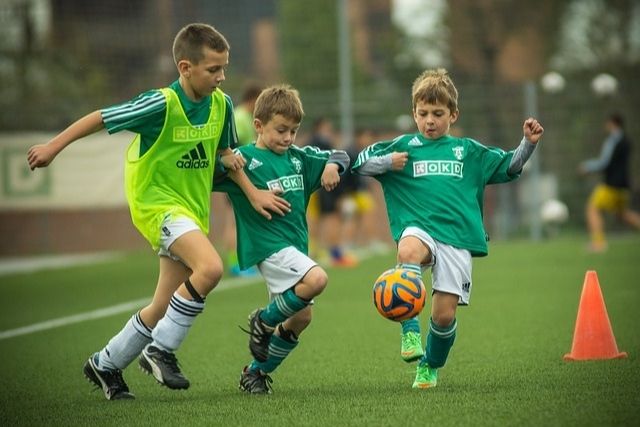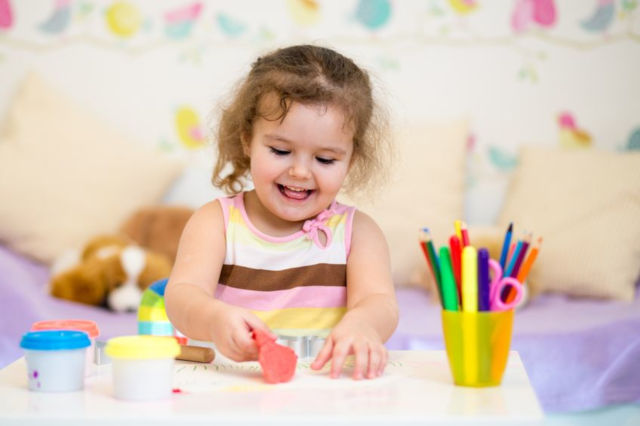Raising selfless and generous kids in a world that focuses more on themselves and values results over human relationships can be a challenge for parents today. Like many young parents, I hope that my kids will grow up to be wise and smart, and who are not easily bullied. Yet I also hope that they will grow up to be sensitive, generous and compassionate to the people around them.

As I thought about what my husband and I can do to ‘educate’ and build the art of generosity and selflessness in their character, we agree that it has to start with ourselves and at home.
1. Be the Example: Role modelling what generosity is like
How are you showing your kids what a selfless and generous life looks like? Our kids will not learn to be selfless or generous unless you first become a role model for them. They learn best while observing our behaviours and habits; we are their best models as they spend the largest amount of their time with us. If there are areas you know that you are self-absorbed with, perhaps it is time for a change! It’s never too late to model good values to our children.
2. Teach your kids to honor other people
The second most important step in raising selfless and generous kids is to teach our kids to honour other people by putting other people first. It is important to teach our kids that there are more value and satisfaction in putting others first than to seek attention for themselves.
One way is to point out opportunities to perform acts of kindness to people around you, your family members, neighbours and also the strangers you meet on the streets. We can teach them to interact with good manners and appreciate others with small acts of love such as thanking them or offering their favourite biscuit or toy with their friends. We can also create opportunities for them to display their act of kindness and generosity from doing a household chore to help your family, to volunteering for a community service project that particularly interests them.
3. Create generous opportunities
Whenever possible, we can try to create opportunities to teach our kids on the art of generosity, such as educating them on how to manage money. It is important to teach them about money from an early age, whether it is through their weekly allowance, building the habit of saving or paying them for chores.
- Building the habit and the joy of saving
We bought a plastic piggy bank for Samuel to begin his journey of saving. Whenever we come home from work or an outing, we would offer our spare coins to Samuel to put them into his little piggy bank. We aim to continue to do so, and eventually ask him if he would like to donate or tithe part of his saving to church, to someone or some charity organization.
- Donating part of their allowances
I know of a parent who gives their children weekly allowances. Whenever they do that, they would sit them down with each of their kid to fill a ‘donation’ container. They would have a choice to allocate a portion of their allowance as a tithe at church and another portion to savings. It is important to note that if our kids choose not to give, don’t place any guilt on them. It is after all best that they give with a cheerful and sincere heart! If that happens, we can continue to persist to encourage them in the months ahead. But when they do choose to give, we could praise their decision and actions.
4. Discussing needs vs wants
Helping our kids learn the importance of needs and wants may help them lay down the way their future shapes up. When the distinction between needs and wants blur, kids grow up feeling over-privileged. It is important for parents to talk to our kids openly about poverty, inequality and money. We can use newspaper articles or media that you come across to start such discussions with them.
As parents, we need to help them to learn that while it is important and all right to fulfill some of the wants, we need to remember that needs can be fulfilled but never all our wants. So even if you can afford it, sometimes saying NO to some of the things your child wants can help bring a lesson to him or her in this journey of learning to be frugal with what they have.
5. Appreciate the positives
It is important for parents to bear in mind that it is not easy for a toddler or a pre-schooler to fully understand the concept of generosity and service to others. Sometimes they may resent having to give away their toys or donate their money. We have to learn to deal with their emotions in the most understanding and compassionate manner and know that it is all right if they don’t want to do it. Don’t be too hard on yourself if they choose not to share or fight over the things that they have.
But when they do something nice for others, share their toys or give generously to their friends, praise them generously! It may be small acts such as laying the dining table, cleaning up the mess on the floor or giving their favourite biscuit away. When our children see that their sharing, generosity and kindness please you, they are more likely to repeat it next time, even if you don’t remind them. If you happen to see someone else demonstrate generosity and kindness, point it out to your child and praise that person lavishly.
By Yvonne Chee.
* * * * *
Like what you see here? Get parenting tips and stories straight to your inbox! Join our mailing list here.
Want to be heard 👂 and seen 👀 by over 100,000 parents in Singapore? We can help! Leave your contact here and we’ll be in touch.





























































Leave a Comment: